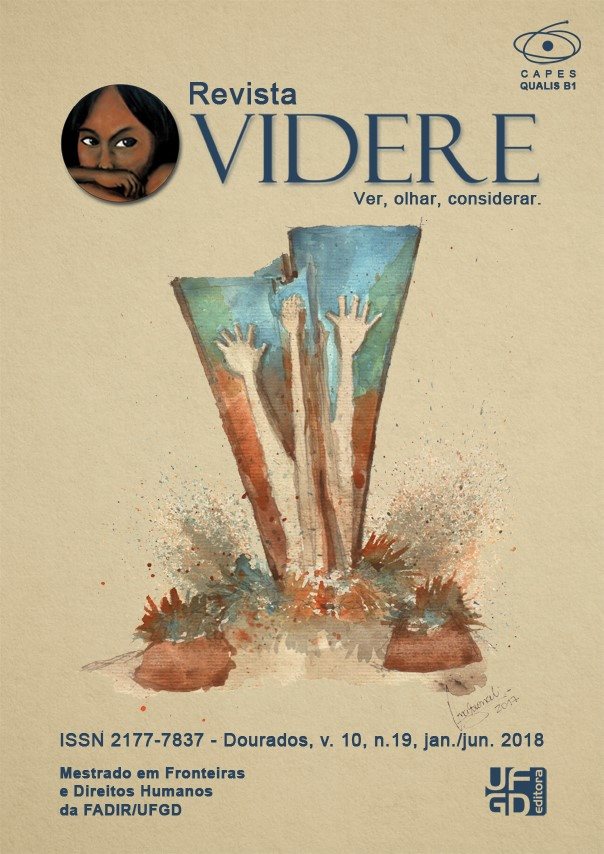Políticas sociais, Estado e a reforma agrária pós-constituição de 1988
DOI:
https://doi.org/10.30612/videre.v10i19.7444Keywords:
Estado. Reforma agrária. Agricultura familiar. Emprego. Renda.Abstract
A agricultura familiar é um importante instrumento de combate a desigualdade social no campo. Além de promover a soberania alimentar, pois produz alimentos que vão diretamente à mesa do brasileiro, a agricultura familiar é promotora de justiça social uma vez que garante emprego e renda aos trabalhadores envolvidos na atividade. A reforma agrária, nesta perspectiva, surge com principal política pública para efetivação do segmento da agricultura familiar com atividade produtiva. É a reforma agrária que garante ao trabalhador despossuído acesso à terra, principal instrumento de trabalho do agricultor. Sendo assim, a reforma agrária deve ser vislumbrada como responsabilidade do Estado em todas as suas formas de realização. A crítica que se faz ao Estado brasileiro é o grande protecionismo ao agronegócio, e o descaso aos pequenos produtores rurais. Neste sentido, nos utilizaremos da Teoria de Estado para debater a agricultura familiar e a reforma agrária. Sendo que nosso objetivo principal é demonstrar que a reforma agrária e agricultura familiar devem ser protagonistas na ação do Estado com a finalidade de contribuir na construção da igualdade social no campo, desconcentrando renda e a terra. Para isso, utilizaremos referencial teórico de teóricos do Estado, fazendo ligação a pesquisadores contemporâneos, estabelecendo debate que contribuam para o entendimento da questão agrária e o lugar do Estado neste processo.Downloads
Downloads
Published
How to Cite
Issue
Section
License
Authors must accept the publication rules when submitting the journal, as well as agree to the following terms:
(a) The Editorial Board reserves the right to make changes to the Portuguese language in the originals to maintain the cultured standard of the language, while respecting the style of the authors.
(b) Authors retain the copyright and grant the journal the right to first publication, with the work simultaneously licensed under the Attribution-NonCommercial-ShareAlike 3.0 Brazil (CC BY-NC-SA 3.0 BR) that allows: Share - copy and redistribute the material in any medium or format and Adapt - remix, transform, and create from the material. CC BY-NC-SA 3.0 BR considers the following terms:
- Attribution - You must give the appropriate credit, provide a link to the license and indicate whether changes have been made. You must do so under any reasonable circumstances, but in no way that would suggest that the licensor supports you or your use.
- NonCommercial - You may not use the material for commercial purposes.
- Sharing - If you remix, transform, or create from material, you must distribute your contributions under the same license as the original.
- No additional restrictions - You may not apply legal terms or technological measures that legally restrict others from doing anything that the license permits.
(c) After publication, authors are allowed and encouraged to publish and distribute their work online - in institutional repositories, personal page, social network or other scientific dissemination sites, as long as the publication is not for commercial purposes.



















